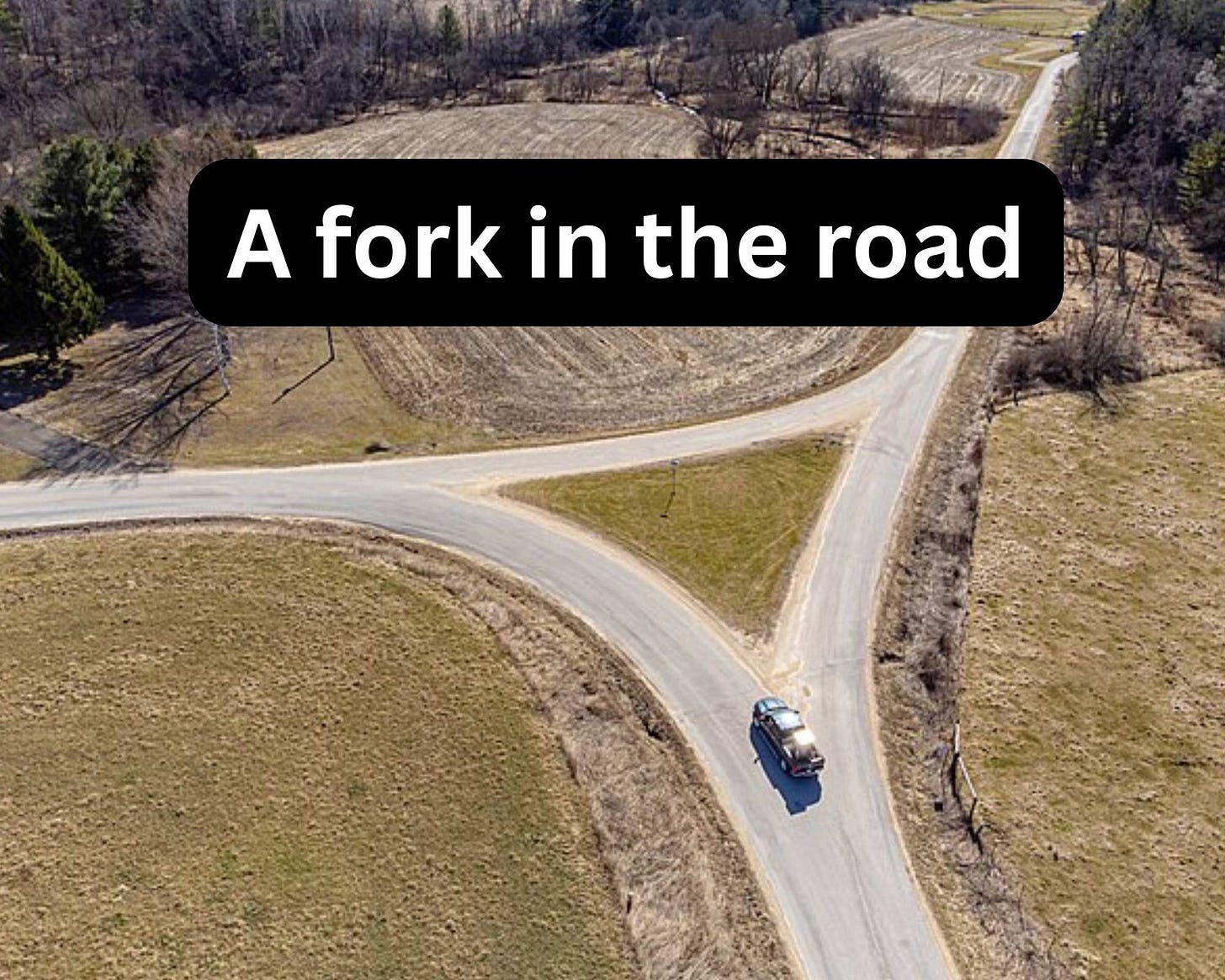Life is about making choices. As adults, we bring our experience and values to bear to make the best decisions we can about often difficult situations.
The thought comes up every time I hear our president say, “I have every right to do it,” whether he’s referring to pardoning all the January 6th rioters, or the rumored pardon of Jeffrey Epstein’s partner-in-crime Ghislaine Maxwell.
Yes, Mr. President, just because you have the right to do something doesn’t mean it’s the right thing to do.
In journalism, we face similar ethical crossroads all the time. We often can run a story legally and technically. But the better question is: Should we?
That’s where judgment comes in. What’s the public value of this information? What harm might it do? Is it fair to the people involved?
Let me give you two real-life examples.
The woman who changed her mind
Years ago, one of our news crews was in a small town covering what was likely a murder. The police weren’t talking. Townspeople didn’t want to go on camera. Eventually, the crew found one woman who agreed to speak. It was a solid interview—her voice gave the story a much-needed perspective.
But by the time the crew returned to the newsroom, the woman had called. She’d changed her mind. She didn’t want to be on the six o’clock news.
When I told the reporter, he looked at me like, “You’re not really going to pull this, are you? She’s the only sound we have!”
Technically, we had every right to use the footage. She was a consenting adult, interviewed in public, on the record. She knew what she was doing.
But I made the call not to use it. She wasn’t a public figure. She changed her mind. And frankly, the PR fallout of broadcasting her against her wishes just wasn’t worth it. Would it have made for a stronger story? Sure. But sometimes, the ethical thing isn’t the easy thing.
The cop with a lead foot
Another time, one of our reporters was doing a series on speed enforcement. He meets up with the local commander of the Iowa State Patrol, who’s only too happy to help. He assigns our reporter and photographer to ride along with another state patrolman. They head out to Highway 141 northwest of town where the trooper sets up radar. They pull over a few speeders. After an hour or two, a pickup truck speeds by. The patrolman pulls in behind the speedster, and our crew jumps out to record it all.
The patrolman, standing by the driver’s window of the pickup, suddenly turns to the camera, laughs nervously, and begs us not to use the footage. Why? Because he had just pulled over his boss – the very same patrol commander, who was heading home from work in his personal pickup. The boss had forgotten about the ride-along. He apparently also had forgotten about the speed limit on Highway 141.
Later that day, the patrol called again and asked very nicely that we not use the video. Too embarrassing, they said.
Should we have run it? We had every right to!
Damned straight we ran it. It was great video. It involved public employees. It perfectly made the point of the story, that any of us can lose focus behind the wheel, forget what we’re doing, and drive at an unsafe speed. I was pretty sure these dedicated patrolmen could survive a little temporary embarrassment, and in fact, have a good laugh about it a few years down the road.
The bigger picture
Here’s what worries me: more and more, it feels like we’re becoming a nation guided not by ethics, but by what people can get away with.
We’re being led by a convicted felon who pardons criminals who support him, who bullies law firms that represent clients he doesn’t like, who files baseless lawsuits against media entities who must pay up to win his approval for business deals.
Justice Potter Stewart once said,
“Ethics is knowing the difference between what you have a right to do and what is the right thing to do.”
That difference is being lost.
And when leaders abandon that distinction, it doesn’t just affect them. It sets the tone for everyone—especially our kids. If all they see is power used for personal gain, with no regard for fairness, honesty, or responsibility, what kind of example are we setting?
Whether you're a president, a police chief, or a journalist, how you behave matters. The decisions you make, the people you surround yourself with, the standards you uphold—they all send a message.
Right now? That message is dangerously close to:
“Ethics is doing whatever benefits me—no matter who gets hurt.”
We can do better. We have to.
Note to readers: Last week’s column, “Undercover and Over the Line – A Sloppy Video Sparks an Iowa Witch Hunt,” drew more views than anything I’ve written in the past three years.
First, thank you — to everyone who read it, shared it, and weighed in. Second, I’ll admit: I didn’t expect it to resonate the way it did. One of the ongoing challenges in this work is never quite knowing what will strike a chord.
This is a constant learning process, and I’m grateful you’re sticking with me as I continue exploring media issues that matter.
A proud member of the Iowa Writers Collaborative. Meet our writers here.



Thank you for your article, Dave! Yes, this is the ethics I learned in Reporting 101. This President seems to have no ethics, or morals. Being in that influential role as leader of our country, young people have a low bar to look up to. These are very sad days in America.
Great column!